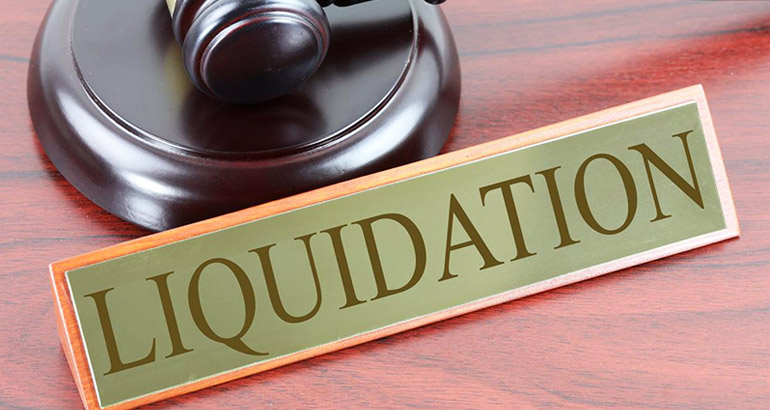5 Easy Facts About Company Liquidation Shown
5 Easy Facts About Company Liquidation Shown
Blog Article
Things about Company Liquidation
Table of ContentsFacts About Company Liquidation RevealedCompany Liquidation Fundamentals ExplainedSee This Report about Company LiquidationThe Ultimate Guide To Company LiquidationWhat Does Company Liquidation Do?
A liquidator is specifically selected to oversee the winding up of a company's affairs in order for it to be folded commonly when the company is going insolvent. The liquidator is an impartial 3rd party who looks after the sale of company properties in order to pay off any outstanding debts.Their function consists of, yet is not restricted to: Impartial Overseer: A liquidator is tasked with functioning as a neutral third celebration to supervise the whole business liquidation process. Produce Statement of Affairs: Liquidators must create an extensive declaration of events record. This paper is dispersed to financial institutions, describing the present monetary status of business at the time of its liquidation.
After the liquidation of a business, its existence is removed from Companies House and it ceases to be a lawful entity. If directors browsed the process without concern, there would certainly be no penalties or personal responsibility for solid financial obligations expected. Currently, with a fresh start, supervisors can check out new business opportunities, though expert assessment is advisable.
Company Liquidation Can Be Fun For Everyone
As an example, if more than 90% of all company shareholders agree, liquidation can happen on short notice within seven days, the minimum statutory notification for lenders. Usually, the larger the liquidation and the more assets and capital the company has, the longer the process will take. 'Do I need to pay to liquidate my company?', the response will certainly depend on whether or not your organization has any type of possessions remaining when liquidating.

We understand that no two companies are the same, which is why we will certainly put in the time to be familiar with your company so we can recommend the most effective course of activity for you. We just operate in your finest passions, so you can be absolutely positive in the service we provide.
5 Easy Facts About Company Liquidation Described
In the UK, there is an established process to folding or restructuring a click here for more info limited business, whether it is solvent or insolvent. This process is called liquidation and can just be taken care of by an accredited insolvency specialist (IP) based on the Insolvency Act here 1986. There are four primary types of company liquidation procedure: Lenders' Voluntary Liquidation (CVL); Mandatory liquidation; Management; and Participants' Voluntary Liquidation (MVL).

In these scenarios, it is necessary that the business ceases trading; if the service continues to trade, the directors can be held directly accountable and it can cause the bankruptcy professional reporting wrongful trading, called misfeasance, which may bring about lawsuit. The directors assign a bankruptcy specialist and once this has actually been agreed and verified, there is a conference with the investors.
Naturally, if there are no shareholders, this step of the procedure is not needed (Company Liquidation). The IP takes control of the company and starts the company liquidation process. The directors are no more included in what takes place, including the sale of the business's properties. However, if the supervisors want any one of the possessions, they can inform the IP.
The Company Liquidation Ideas
The main distinction is that the business's lenders used to the court for a winding up order which compels the bankrupt business into a liquidation process. Creditors take this action as a last resort due to the fact that they haven't received payment with various other types of arrangement. The court assigns a bankruptcy specialist, also referred to as an official receiver, to perform the obligatory company liquidation procedure.
This sort of business liquidation is not voluntary and supervisors' conduct is reported to the UK's Assistant of State once the liquidation procedure has been finished. Any kind of director that stops working to coordinate with the IP or has actually been included in director transgression, or a deceitful act, may result in severe repercussions.
It is utilized as a way to safeguard the company from any legal action by its creditors. The directors of the business concur to make regular repayments to resolve their debts over a duration of time.
Some Known Questions About Company Liquidation.
This supplies the company with time to create a plan going ahead to save the business and stay clear of liquidation. At this factor, supervisors hand control of the business over to the assigned administrator. If a business is solvent yet the directors and investors desire to shut the organization, a Members Voluntary more Liquidation is the right alternative.
The business liquidation procedure is managed by a liquidator designated by the directors and investors of the company and they must sign a declaration that there are no lenders continuing to be. The liquidation process for an MVL resembles that of a CVL because assets are understood however the earnings are dispersed to the directors and the shareholders of the company after the liquidator's costs have actually been paid.
Report this page